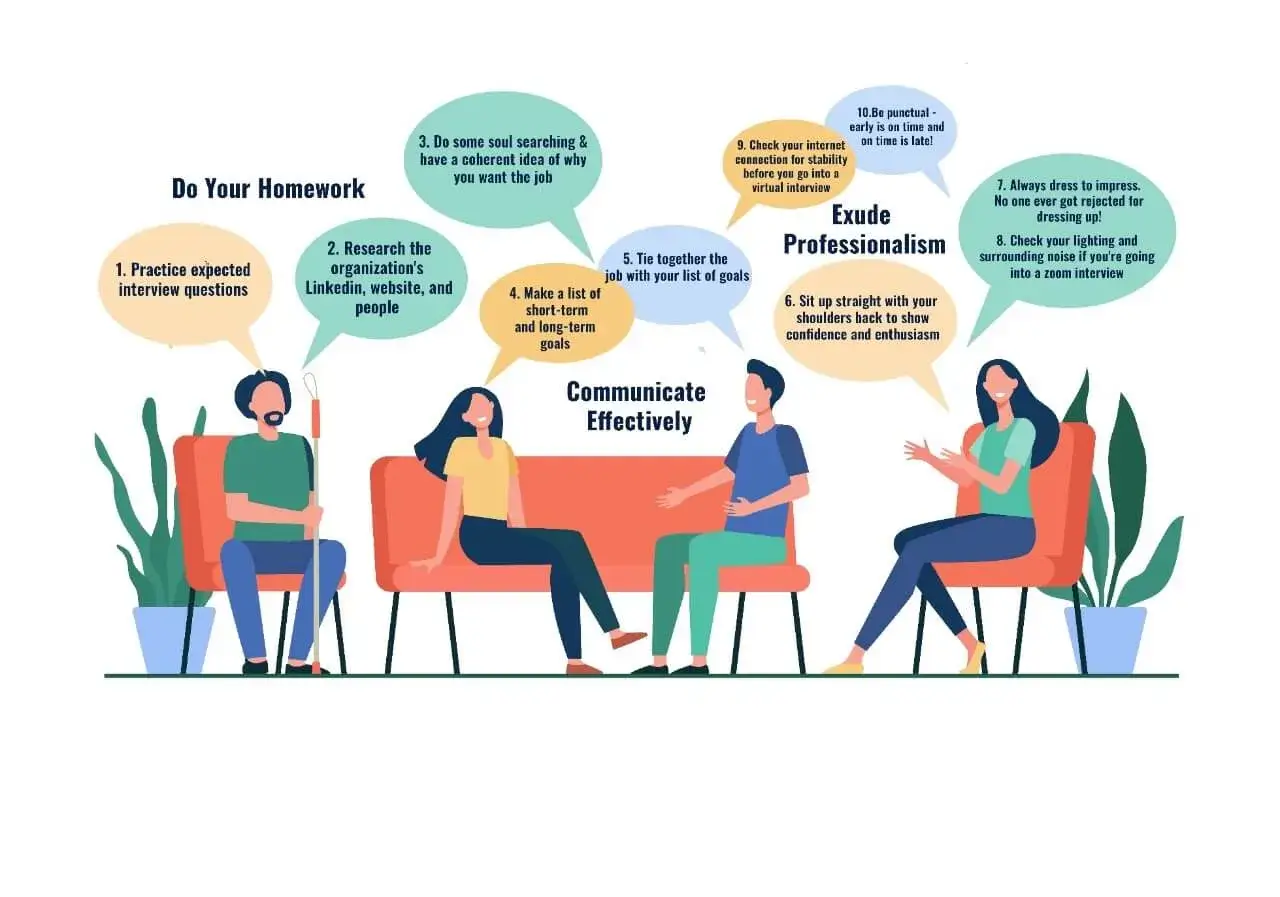We are all familiar with feeling exultation at securing a job interview. The majority of us fail interviews at one point or another mainly because of the confusing interview questions by the recruiter. So we are also familiar with the sense of dread that accompanies getting shortlisted for one.


We are all familiar with feeling exultation at securing a job interview. The majority of us fail interviews at one point or another mainly because of the confusing interview questions by the recruiter. So we are also familiar with the sense of dread that accompanies getting shortlisted for one. It makes sense for us to think we don’t deserve the job. But I am here to tell you that that’s untrue. Mostly there are a lot of technical reasons that we don’t account for that can be easily remedied. A lot of recruiters interviewing us agree that in their experience, most of the people that fail interviews have the knowledge or skill to be deserving of the position but can’t live up to certain standards during the interview process. This article serves to be an interview guide. It discusses the top most common non-technical reasons why people fail interviews. And I am sure you guys must have questions to ask regarding it too. It also explains how you can fix them very easily and land your dream job.
The most obvious mistake is to go into an interview underprepared. Therefore always be prepared. No matter what kind of an interview it is, it is necessary to do your homework to perform well and know your strengths and weaknesses. Interviewers pick up an interviewee’s lack of preparation very easily. When an interviewee does not expect a question, their answers lack clarity. As a result, they are unable to communicate a well-put answer. You might be thinking this doesn’t apply to you. You clearly think through all the possible questions you can be asked and prepare answers. However, I’d suggest not only brainstorming but also finding a way to rehearse. Doing it with someone would be the best-case scenario. in clear words, perform a mock interview. If that’s not an option, you can practice in front of a mirror. This might sound over the top, but the practice is the key to acquiring the confidence and clarity that would impress the hiring manager.
In addition, before the Interview, a big focus point should be researching upon the organization. Its history, its values, basically its company culture, and how your value addition will help further the collective goals of the organization. Many people forego this part or are just not aware of its importance. We need to look at the Interview as an opportunity not only to show ourselves off but a chance to connect with one of the drivers of the organization. Likely, your interviewer probably embodies the ethos of the organization. They would appreciate seeing some of those same values in you. How do you accomplish that? By researching the organization before showing up and being genuinely inquisitive. This will be a clear indicator to the interviewer that your vision and goals are aligned with the rest of them and that of the organization as a whole.
Talking about having clarity of vision, we have two aspects. One is slightly technical: recruiters often find irrelevant CVs among the pile shortlisted. Often interviewees practically have no idea why they are the best for the job. in fact, during the interview, they find it difficult to explain what exactly they are looking for in their job search. One possibility could be that you do not, in fact, know what it is specifically you’re looking for. You are just trying your luck in uncharted territory, but often that isn’t the case, though. The problem lies with you not being able to properly communicate to the interviewer about what you really want. Therefore, I advise you to ask about the complete and detailed job description before you even apply.
If you don’t want to fail interviews again, it is a good idea to let them know your story and how to answer. Here are a few typical job interview questions that you must know the answers to: Why did you quit your previous job, what were the shortcomings and what are you looking for right now. Intentionality always serves you well. If you have that discussion openly with the interviewer, even if you find out you’re not the right fit for this organization, it will leave you in that interviewer’s good books, and he might be able to point you in a better direction which will eventually lead you to a job that would be more fulfilling.
Next, we have a bunch of problems that leave you unable to build a rapport with the interviewer. Essentially you’re both strangers, and it’s your job to establish a connection if you want to get the job. And as it is with humans, first impressions do matter a lot. So it is important to have a positive and show enthusiasm during the Interview. There are a lot of things that one can do that send implicit messages to the interviewer that have to do with human psychology and not much else.
You have to develop the right body language. Emotions are catchy, and having the right body language will engage the interviewer.
Appearance matters a lot too, it tells the interviewer about the kind of person you are:
Punctuality is another aspect you can control. You should always try to be early for every interview so that if something comes up, you can be on time.
All of these are signals of your dedication and work ethos. They go a long way in influencing your impression in the mind of the interviewer. Furthermore, in your answers, you should be as clear and honest as possible without being too humble. It is, after all, an excuse for you to show yourself off but maintaining the right balance is key. Finally, the interviewer is also human, and to better connect to them, feel free to ask them personal questions. For example, their reason to join the company, etc., which will help them remember you well. Gaper’s research has the following results for the top 5 reasons people fail interviews:
If you become mindful of these problems, you will not fail interviews because of easily fixable issues. Eventually, that will translate into you landing your dream job. I believe the saying ‘fail to prepare and prepare to fail’ has never been more adept.
If you found the article informative, you can read similar content on our blog.
Top quality ensured or we work for free
